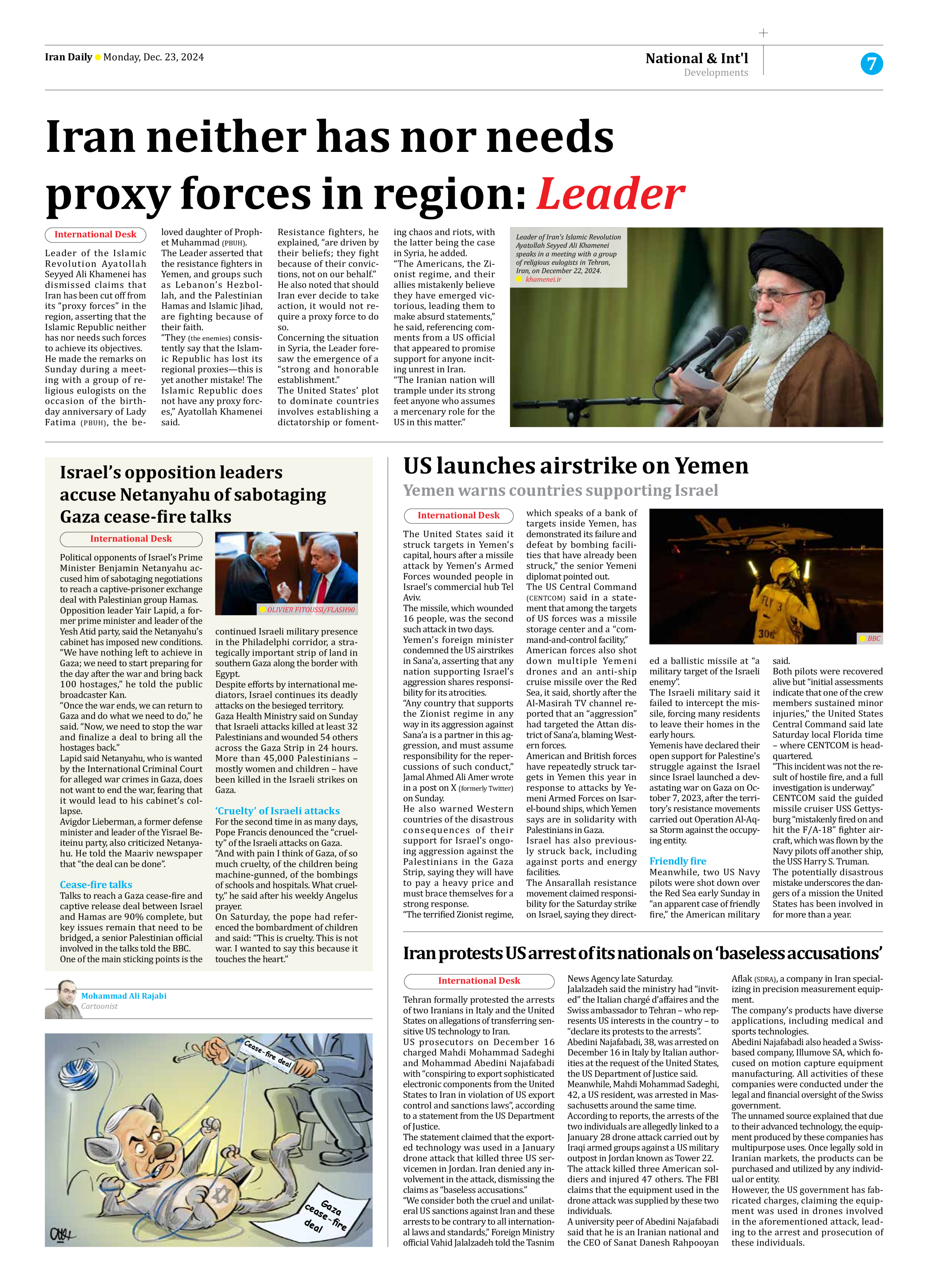
Iran protests US arrest of its nationals on ‘baseless accusations’
Tehran formally protested the arrests of two Iranians in Italy and the United States on allegations of transferring sensitive US technology to Iran.
US prosecutors on December 16 charged Mahdi Mohammad Sadeghi and Mohammad Abedini Najafabadi with “conspiring to export sophisticated electronic components from the United States to Iran in violation of US export control and sanctions laws”, according to a statement from the US Department of Justice.
The statement claimed that the exported technology was used in a January drone attack that killed three US servicemen in Jordan. Iran denied any involvement in the attack, dismissing the claims as “baseless accusations.”
“We consider both the cruel and unilateral US sanctions against Iran and these arrests to be contrary to all international laws and standards,” Foreign Ministry official Vahid Jalalzadeh told the Tasnim News Agency late Saturday.
Jalalzadeh said the ministry had “invited” the Italian chargé d’affaires and the Swiss ambassador to Tehran – who represents US interests in the country – to “declare its protests to the arrests”.
Abedini Najafabadi, 38, was arrested on December 16 in Italy by Italian authorities at the request of the United States, the US Department of Justice said.
Meanwhile, Mahdi Mohammad Sadeghi, 42, a US resident, was arrested in Massachusetts around the same time.
According to reports, the arrests of the two individuals are allegedly linked to a January 28 drone attack carried out by Iraqi armed groups against a US military outpost in Jordan known as Tower 22.
The attack killed three American soldiers and injured 47 others. The FBI claims that the equipment used in the drone attack was supplied by these two individuals.
A university peer of Abedini Najafabadi said that he is an Iranian national and the CEO of Sanat Danesh Rahpooyan Aflak (SDRA), a company in Iran specializing in precision measurement equipment.
The company’s products have diverse applications, including medical and sports technologies.
Abedini Najafabadi also headed a Swiss-based company, Illumove SA, which focused on motion capture equipment manufacturing. All activities of these companies were conducted under the legal and financial oversight of the Swiss government.
The unnamed source explained that due to their advanced technology, the equipment produced by these companies has multipurpose uses. Once legally sold in Iranian markets, the products can be purchased and utilized by any individual or entity.
However, the US government has fabricated charges, claiming the equipment was used in drones involved in the aforementioned attack, leading to the arrest and prosecution of these individuals.







